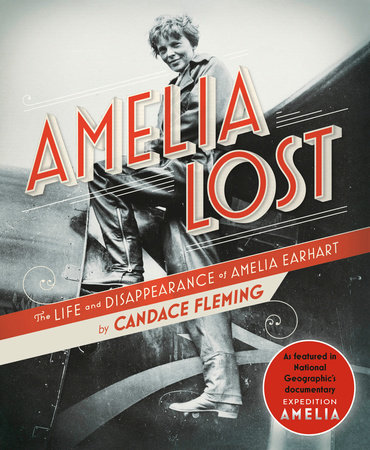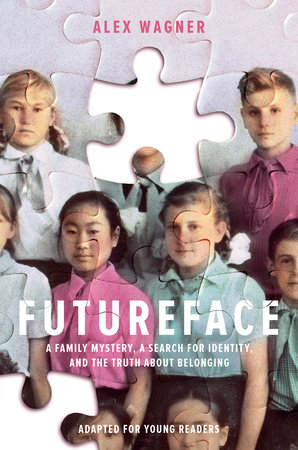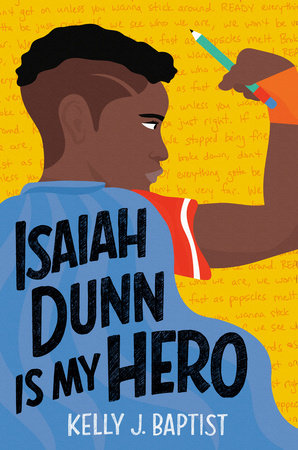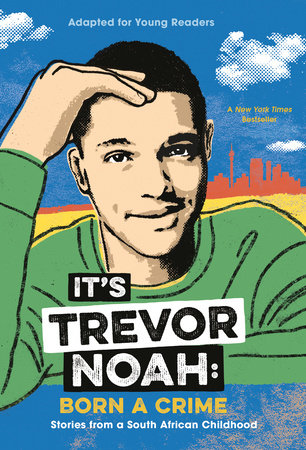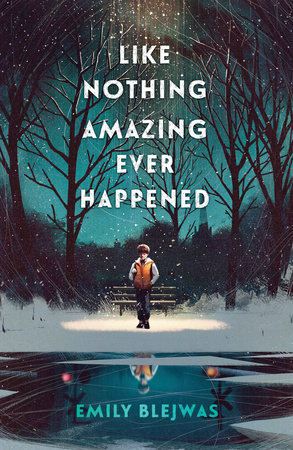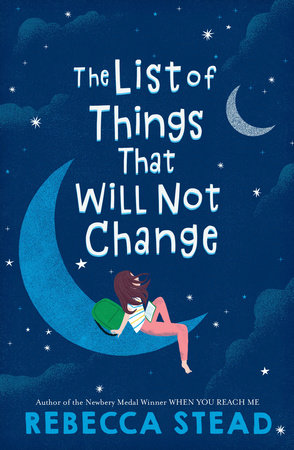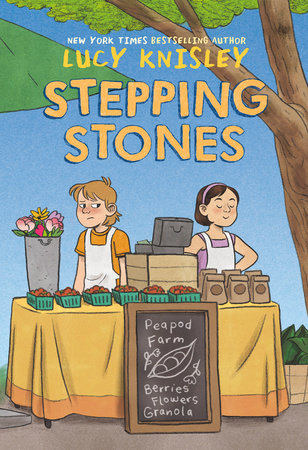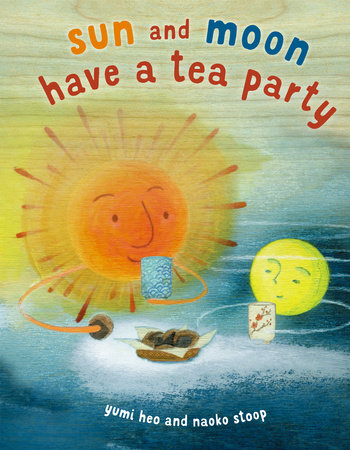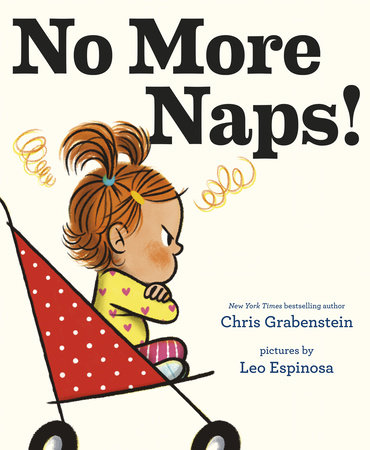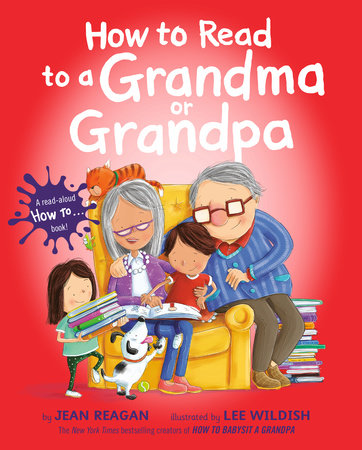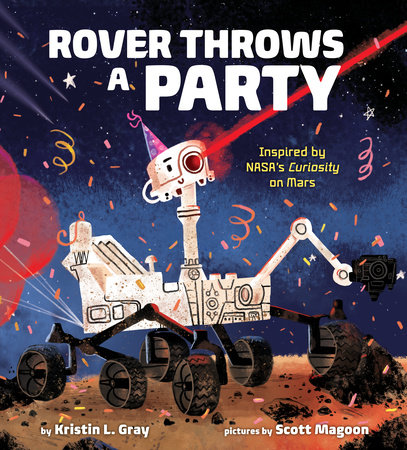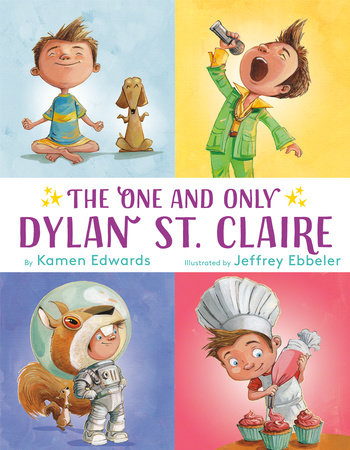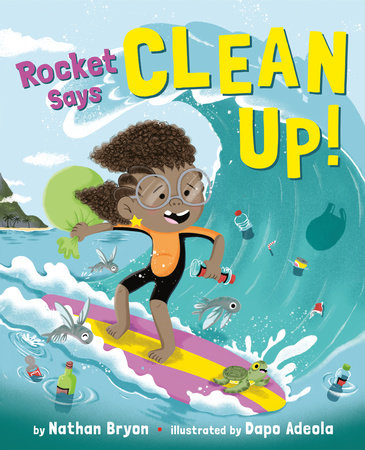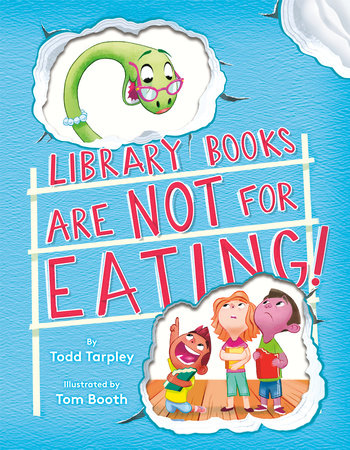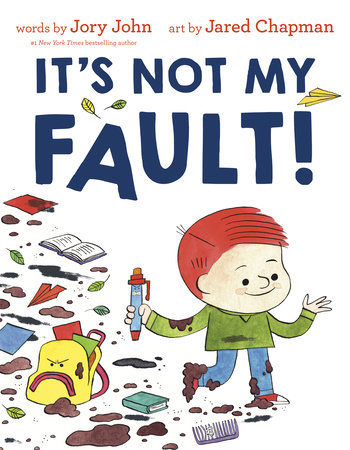SUPPORT AND READ BANNED & CHALLENGED BOOKS!
Our fundamental freedom to read continues to be challenged. Children’s books are constant targets of book-banning efforts in school systems and public libraries. Random House Children’s Books is committed to those who stand against censorship, and we continue to publish books that celebrate the freedom of expression.
We are proud to support our authors’ right to write and our readers’ right to read.
Congress shall make no law respecting an establishment of religion, or prohibiting the free exercise thereof, or abridging the freedom of speech, or of the press; or the right of the people peaceably to assemble, and to petition the Government for a redress of grievances.
—The First Amendment
Dealing with Book Challenges

Most school districts have policies that address controversial materials in the library and classroom. This includes a process for a citizen to file a formal challenge. Here are ways that school personnel might deal with challenges.
- Know your school district’s policy and discuss it with your administrator.
- Meet with the concerned parent or parents and let them know why the book was selected, the themes to be discussed with students, and writing assignments.
- Offer an alternative title that addresses the same themes explored in the challenged material. Assure parents that their students may leave the classroom and complete another assignment when the class is engaged in discussion of the challenged novel.
- If the issue is unresolved in the meeting, give the complainants a copy of the school board policy and the instructions for filing a formal request for reconsideration. This should include:
- A statement declaring that they have read the entire book
- Reasons for the challenge (language, sex, violence, religious viewpoint, etc.)
- A statement regarding literary merits of the book
- Suggestions of other titles that deal with the same themes, and that they deem more appropriate for their child
- Assure parents that the school and school district’s materials review committee will read the novel and address the complaint. The committee will then make a recommendation to the school board.
- Spread the word to colleagues and friends that a book challenge is in progress. They may engage in recruiting others to speak up for the book in their neighborhoods, local media, and social media.
- Don’t hesitate to contact the American Library’s Association Office for Intellectual Freedom and the National Coalition Against Censorship for help. They will respect your anonymity if you request it.
- Be honest with students should they ask about a book challenge in progress. Word spreads and they are likely to know about it. Do not reveal which parents have complained. Never make a student feel guilty for the action of their parents.
Strategies
Explain the Situation
When faced with a challenge to a book in your collection, explain your selection process—and the legal protection of that policy—to the complainant. Advice from the ALA:
Each library has its own selection and collection development policies. . . . Selection is an inclusive process, in which librarians seek materials that will provide a broad range of viewpoints and subject matter. This means that while library collections have thousands of items families want, like and need, they also will have materials that some parents may find offensive to them or inappropriate for their children. Because an item is selected does not mean the librarian endorses or promotes it. He or she is simply helping the library to fulfill its mission of providing information from all points of view. (Source: www.ala.org)
Know the Facts
As public institutions, libraries cannot discriminate based on age, sex, race, or any other characteristic. Therefore, a library cannot legally restrict access to materials based on age—a common request of concerned adults in relation to children’s material.
Reach Out to Your Local Community and Media
The library is a public institution and their goal is to serve the people. Incorporate the public because the books in your collection belong to all citizens.
Teacher Strategies
Know the Full Substance
Be ready to discuss controversial subjects with your students and be prepared to address parents’ concerns. Develop a written rationale to articulate the reasons for using a particular literary work in the classroom. According to the NCTE: Rationale development should be a part of thoughtful planning for classroom instruction. If we have not reflected on the whys of what we teach, we will be unprepared to meet the needs and challenges of our students and to respond to potential complaints, either from parents or from others in the community who seek to influence the curriculum. . . (Source: www.ncte.org)
Open Communication
Provide parents with a copy of the written rationale, as proof of how the title in question fits into the curriculum. If a parent raises a challenge, advise them to read the entire book, and explain the danger of interpreting language or actions outside of the context of the story.
Discuss the Situation
Talk to other teachers, librarians, guidance counselors, principals, and the board of education to explain the situation. Getting their support will make a big difference—multiple voices are louder than one.
Learn the Details
Be familiar with your material selection policy, including local criteria, the methods for choosing materials, and who selects materials. Know your school’s method for dealing with complaints. Make sure the entire school staff is aware of the policy for handling challenges and will strictly adhere to these policies.
General Strategies
Contact National Organizations Who Can Help
Numerous national organizations provide information, tools, and support, including the American Library Association, the National Coalition Against Censorship, and the American Booksellers Foundation for Freedom of Expression. Click here for contact information and Web site addresses for these and other censorship experts.
Know the First Amendment
Freedom of speech is a powerful tool supported by law that protects your rights and the rights of your readers. Click here to download a printable copy of the First Amendment.
Be Familiar with the Definition of Intellectual Freedom
Intellectual freedom is the right of every individual to both seek and receive information from all points of view without restriction. For a fuller analysis and defense of this right, read the Intellectual Freedom and Censorship Q & A here.
Research Past Cases
Over the years many books have been challenged. Responses to these challenges are archived on several Web sites, including www.ala.org/advocacy/intfreedom/librarybill. Use these past examples to support your defense.
Sample Letter to the Editor
When you choose to fight censorship, remember that you are not alone. Raising community awareness and enlisting support are key steps toward removing book bans and guaranteeing intellectual freedom. The media can serve as a powerful source of support. By filling out this form letter and sending it to various newspapers, magazines and other media outlets, you can spread the word and begin to form a united front against censorship.
Copy this letter and paste it into your own document:
Dear (Name):
As you know, (Organization) has recently challenged the right of the children of our community to read (Book/Author). In a way, this is an honor—(Book) takes its place beside other books that have been banned, titles including such classics as Little House on the Prairie, The Adventures of Huckleberry Finn, Hamlet, and Of Mice and Men. Certainly, (Book) is in august company.
Censorship—the suppression of ideas or other information that a portion of the population finds objectionable—is an abrogation of the First Amendment to the Constitution of the United States of America. It is this amendment that guarantees us the right to free speech, and by extension, freedom to read. When censorship is applied to what our children read, even for what appears to be the noblest of motives, we teach the young a far more harmful lesson than any work of literature ever could. We teach that the few can disrupt the rights of all. We teach our children that they are not capable of learning to think for themselves, to make considered and thought-out decisions. We teach that conformity is worth more than true learning.
This is a lesson we cannot support.
The American Library Association, the American Booksellers Association, the American Booksellers Foundation for Free Expression, the Association of American Publishers, the American Society of Journalists and Authors, the National Coalition Against Censorship, The Center for the Book, and The Library of Congress are just a few of the organizations that agree with us. So does the U.S. Constitution. The First Amendment states simply and clearly: “Congress shall make no law . . . abridging the freedom of speech, or of the press.”
We are writing to invite your support for our children’s constitutional right. Our children deserve the best we can offer—limitless ideas and the freedom to read about them.
Sincerely,
(Name)
Organizations that Can Help
American Library Association
Office for Intellectual Freedom
50 E. Huron Street
Chicago, IL 60611
1-800-545-2433
www.ala.org/offices/oif
www.ala.org/bbooks/
American Civil Liberties Union
125 Broad Street, 18th Floor
New York, NY 10004-2400
(212) 549-2500
www.aclu.org
National Coalition Against Censorship
275 7th Ave
New York, NY 10001
(212) 807-6222
www.ncac.org
National Council of Teachers of English
PO Box 416
Annapolis Junction, MD 20701-0416
(212) 807-6222
ncte.org/resources/ncte-intellectual-freedom-center/
Downloadable Resources
Portions of Talking About Banned Books were prepared by Pat Scales, Children’s Literature Consultant, Greenville, South Carolina.
Building Resiliency
Books about self-discovery and self-confidence
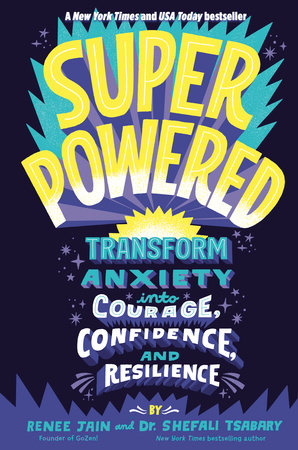
Superpowered By Renee Jain and Dr. Shefali Tsabary
This New York Times and USA TODAY bestseller is the perfect tool for children facing new social and emotional challenges in an increasingly disconnected world! This how-to book from two psychology experts--packed with fun graphics and quizzes--will help kids transform stress, worry, and anxiety. Give it to fans of The Confidence Code for Girls and Raina Telgemeier's Guts.
Now more than ever, kids need to feel empowered as they work through anxiety, overwhelm, and uncertainty brought on by the world around them. With its helpful, hands-on suggestions and tips, SUPERPOWERED will be embraced by every kid with insecurities, worries, and anxious thoughts.
Renee Jain (founder of GoZen!) and Dr. Shefali Tsabary (New York Times bestelling author and Oprah contributor) make readers the superheroes of their own stories. They introduce a toolkit of easy-to-understand methods for recognizing anxious behaviors, identifying the root causes of worried thinking, and realizing that strength can be found in reclaiming one's inner superpowers.
With the help of humorous artwork and interactive elements, readers find their P.O.W.E.R. (an acronym that inspires mindfulness and resilience practices) and gain lasting mental strength.
![]()
More fiction and nonfiction titles to build resilience
The Book Thief

The Book Thief By Markus Zusak
Liesel Meminger is only nine years old when she is taken to live with the Hubermanns, a foster family, on Himmel Street in Molching, Germany, in the late 1930s. She arrives with few possessions, but among them is The Grave Digger’s Handbook, a book that she stole from her brother’s burial place. During the years that Liesel lives with the Hubermanns, Hitler becomes more powerful, life on Himmel Street becomes more fearful, and Liesel becomes a full fledged book thief. She rescues books from Nazi book-burnings and steals from the library of the mayor. Liesel is illiterate when she steals her first book, but Hans Hubermann uses her prized books to teach her to read. This is a story of courage, friendship, love, survival, death, and grief. This is Liesel’s life on Himmel Street, told from Death’s point of view.
Hear a New Message from The Book Thief’s Author, Markus Zusak
Teaching Resources for The Book Thief
Explore free printables on ReadWriteThink.org
Praise for The Book Thief
“Brilliant . . . it’s the kind of book that can be life-changing. ” —The New York Times
★ “Beautiful and important.”
—Kirkus Reviews, Starred Review
★ “An achievement. ” —Publishers, Starred Review
★”Exquisitely written and memorably populated, Zusak’s poignant tribute to words, survival, and their curiously inevitable entwinement is a tour de force to be not just read but inhabited.” —The Horn Book Magazine, Starred
★ “An extraordinary narrative.” —School Library Journal, Starred
“One of the most highly anticipated young-adult books in years.” —The Wall Street Journal
A Social Justice Primer
Books at the Intersection of Literature, Privilege, and Power
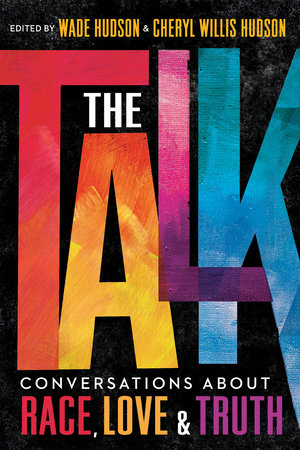
The Talk By Edited By Wade Hudson and Cheryl Willis Hudson
Thirty diverse, award-winning authors and illustrators invite you into their homes to witness the conversations they have with their children about race in America today in this powerful call-to-action that invites all families to be anti-racists and advocates for change.
"Project[s] love and support." --The New York Times
As long as racist ideas persist, families will continue to have the difficult and necessary conversations with their young ones on the subject. In this inspiring collection, literary all-stars such as Renée Watson (Piecing Me Together), Grace Lin (Where the Mountain Meets the Moon), Meg Medina (Merci Suárez Changes Gears), Adam Gidwitz (The Inquisitor's Tale), and many more engage young people in frank conversations about race, identity, and self-esteem. Featuring text and images filled with love, acceptance, truth, peace, and an assurance that there can be hope for a better tomorrow, The Talk is a stirring anthology and must-have resource published in partnership with Just Us Books, a Black-owned children's publishing company that's been in operation for over thirty years. Just Us Books continues its mission grounded in the same belief that helped launch the company: Good books make a difference.
So, let's talk.
Featured contributors: Selina Alko, Tracey Baptiste, Derrick Barnes, Natacha Bustos, Cozbi A. Cabrera, Raul Colón, Adam Gidwitz, Nikki Grimes, Rudy Gutierrez, April Harrison, Wade Hudson, Gordon C. James, Minh Lê, E. B. Lewis, Grace Lin, Torrey Maldonado, Meg Medina, Christopher Myers, Daniel Nayeri, Zeke Peña, Peter H. Reynolds, Erin K. Robinson, Traci Sorell, Shadra Strickland, Don Tate, MaryBeth Timothy, Duncan Tonatiuh, Renée Watson, Valerie Wilson Wesley, Sharon Dennis Wyeth
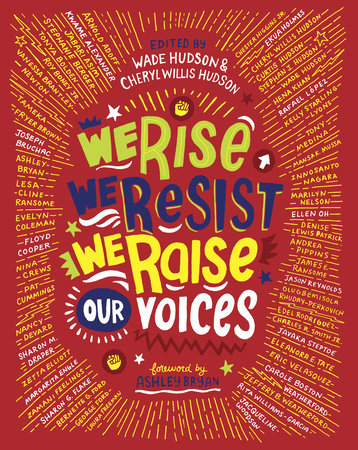
We Rise, We Resist, We Raise Our Voices By Edited by Wade Hudson and Cheryl Willis Hudson
Fifty of the foremost diverse children's authors and illustrators--including Jason Reynolds, Jacqueline Woodson, and Kwame Alexander--share answers to the question, "In this divisive world, what shall we tell our children?" in this beautiful, full-color keepsake collection, published in partnership with Just Us Books.
What do we tell our children when the world seems bleak, and prejudice and racism run rampant? With 96 lavishly designed pages of original art and prose, fifty diverse creators lend voice to young activists.
Featuring poems, letters, personal essays, art, and other works from such industry leaders as Jacqueline Woodson (Brown Girl Dreaming), Jason Reynolds (All American Boys), Kwame Alexander (The Crossover), Andrea Pippins (I Love My Hair), Sharon Draper (Out of My Mind), Rita Williams-Garcia (One Crazy Summer), Ellen Oh (cofounder of We Need Diverse Books), and artists Ekua Holmes, Rafael Lopez, James Ransome, Javaka Steptoe, and more, this anthology empowers the nation's youth to listen, learn, and build a better tomorrow.
A Kirkus Reviews Best Book of 2018!
A Publishers Weekly Best Book of 2018!
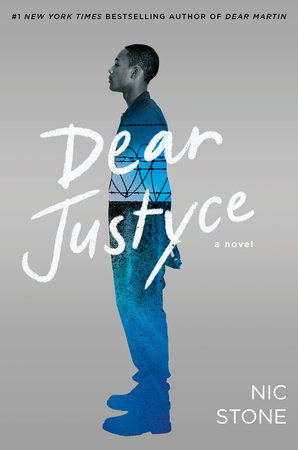
Dear Justyce By Nic Stone
An NPR Best Book of the Year * The stunning sequel to the critically acclaimed, #1 New York Times bestseller Dear Martin. An incarcerated teen writes letters to his best friend about his experiences in the American juvenile justice system.
An unflinching look into the tragically flawed practices and silenced voices in the American juvenile justice system.
Vernell LaQuan Banks and Justyce McAllister grew up a block apart in the Southwest Atlanta neighborhood of Wynwood Heights. Years later, though, Justyce walks the illustrious halls of Yale University . . . and Quan sits behind bars at the Fulton Regional Youth Detention Center.
Through a series of flashbacks, vignettes, and letters to Justyce--the protagonist of Dear Martin--Quan's story takes form. Troubles at home and misunderstandings at school give rise to police encounters and tough decisions. But then there's a dead cop and a weapon with Quan's prints on it. What leads a bright kid down a road to a murder charge? Not even Quan is sure.
"A powerful, raw, must-read told through the lens of a Black boy ensnared by our broken criminal justice system." -Kirkus, Starred Review
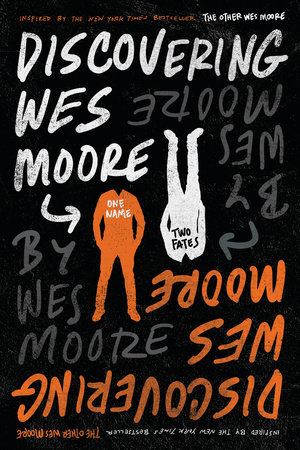
Discovering Wes Moore By Wes Moore
From the governor-elect of Maryland comes a story of two fatherless boys from Baltimore, both named Wes Moore. One is in prison, serving a life sentence for murder. The other is a Rhodes Scholar, an army veteran, and an author whose book is being turned into a movie produced by Oprah Winfrey.
The story of “the other Wes Moore” is one that the author couldn’t get out of his mind, not since he learned that another boy with his name—just two years his senior—grew up in the same Baltimore neighborhood. He wrote that boy—now a man—a letter, not expecting to receive a reply. But a reply came, and a friendship grew, as letters turned into visits and the two men got to know each other. Eventually, that friendship became the inspiration for Discovering Wes Moore, a moving and cautionary tale examining the factors that contribute to success and failure—and the choices that make all the difference.
Two men. One overcame adversity. The other suffered the indignities of poverty. Their stories are chronicled in Discovering Wes Moore, a book for young people based on Wes Moore’s bestselling adult memoir, The Other Wes Moore.
Includes an 8-page photo insert.
Praise for Discovering Wes Moore
“Moore wisely opens the door for teens to contemplate their own answers and beliefs, while laying out his own experiences honestly and openly.”—Publishers Weekly
“He argues earnestly and convincingly that young people can overcome the obstacles in their lives when they make the right choices and accept the support of caring adults.”—Kirkus Reviews
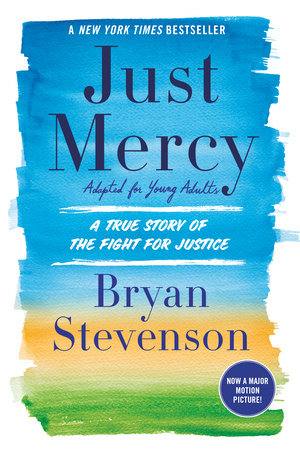
Just Mercy (Adapted for Young Adults) By Bryan Stevenson
The young adult adaptation of the acclaimed, #1 New York Times bestseller Just Mercy--now a major motion picture starring Michael B. Jordan, Jaime Foxx, and Brie Larson and the subject of an HBO documentary feature!
In this very personal work--adapted from the original #1 bestseller, which the New York Times calls "as compelling as To Kill a Mockingbird, and in some ways more so"--acclaimed lawyer and social justice advocate Bryan Stevenson offers a glimpse into the lives of the wrongfully imprisoned and his efforts to fight for their freedom.
Stevenson's story is one of working to protect basic human rights for the most vulnerable people in American society--the poor, the wrongly convicted, and those whose lives have been marked by discrimination and marginalization. Through this adaptation, young people of today will find themselves called to action and compassion in the pursuit of justice.
Proceeds of this book will go to charity to help in Stevenson's important work to benefit the voiceless and the vulnerable as they attempt to navigate the broken U.S. justice system.
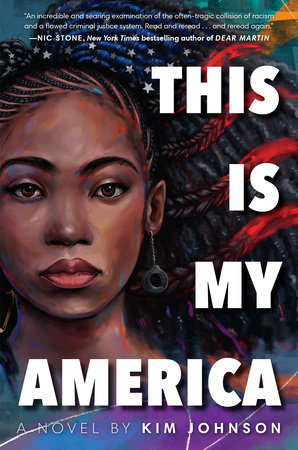
This Is My America By Kim Johnson
"Incredible and searing." --Nic Stone, #1 New York Times bestselling author of Dear Martin
The Hate U Give meets Just Mercy in this unflinching yet uplifting first novel that explores the racist injustices in the American justice system.
Every week, seventeen-year-old Tracy Beaumont writes letters to Innocence X, asking the organization to help her father, an innocent Black man on death row. After seven years, Tracy is running out of time--her dad has only 267 days left. Then the unthinkable happens. The police arrive in the night, and Tracy's older brother, Jamal, goes from being a bright, promising track star to a "thug" on the run, accused of killing a white girl. Determined to save her brother, Tracy investigates what really happened between Jamal and Angela down at the Pike. But will Tracy and her family survive the uncovering of the skeletons of their Texas town's racist history that still haunt the present?
Fans of Nic Stone, Tiffany D. Jackson, and Jason Reynolds won't want to miss this provocative and gripping debut.













